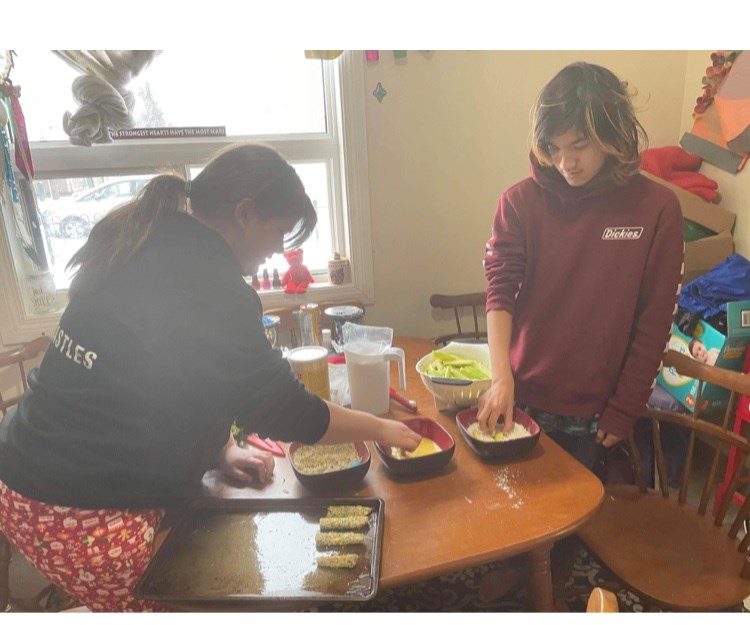The Thunder Bay Indigenous Friendship Centre is a place of support for many members of the Indigenous community. Providing services for ages zero – 100, their clients and families are receiving the support they need, especially during uncertain times.
By providing Indigenous based, culturally appropriate programs for children, youth and adults, clients can receive services specific to their age group.
A program for every age
Waabogonee, meaning flower that wakes up in the morning and blossoms throughout the day, is an EarlyON program for children up to six years of age and their parents and caregivers, allowing them to engage as co-learners and leaders in influencing positive child, family, and community experiences.
“We’ve had family members start at birth and are now volunteers in our life-long care program so it really just continues and is a wonderful atmosphere,” says Turbide.
The Children’s Wellness Program serves children ages seven to 15 and aims to improve the health and wellbeing of Indigenous children, families, and communities by providing one-on-one counselling, crisis intervention, fitness, and recreation activities, as well as referrals to other services like addiction counselling and shelters and assists clients with services to reduce family violence and improve indigenous health.
“It’s crucial to have services that add extra features just for that [specific] age group,” says Rhonda Turbide, Child and Family Services Program Manager.
The Youth Life Promotion Program and Wasa-Nabin Program serve children from ages 13 onward focuses on cultural reclamation and self-determination. By aiming to promote positive self-identity, leadership skills and social responsibility these programs provide youth camps and leadership development, programming for two-spirit and Indigenous LGBTQ youth and incorporate cultural awareness and traditional teachings.
These programs encourage Indigenous at-risk children to build and foster their inherent ability to make healthy choices allowing children and family relationships to grow stronger and more resilient through TBIFC’s strength-based and community-empowered approaches.
Staying connected
Continuing these approaches virtually has been a struggle but TBIFC has adapted.
While Covid-19 has brought a halt to all in-person programs, TBIFC has continued its support for their clients and family through virtual means and with contactless deliveries.
One such example is their food bank.
While walk-ins are no longer allowed during lockdown, TBIFC drops off the food to families.
Registered youth participants who are in self-isolation and have been provided additional kits along with food.
“What we’ve been focusing on is called Wellness Kits and Self-Care kits. We’ve been providing families with kits on hand to have in case they’re feeling overwhelmed so things like journaling, cup of tea, bath bombs [and] colouring programs… what people are looking for are tangible things to do as a family and it’s been great,” Turbide says.
Community support
Along with kits and new virtual activities, the TBIFC staff have taken on a conversational role with their clients and allowed them to openly discuss their struggles and how they’re coping during this time.
“A lot of what our staff is doing now is one-on-one conversations and validating how they’re struggling.”
With more conversations happening and wellness kits going out, including a gardening kit for the summer, TBIFC is making light of a time that hasn’t been easy and is letting families know they’re not alone, problem solving how they can continue supporting their clients and families.



